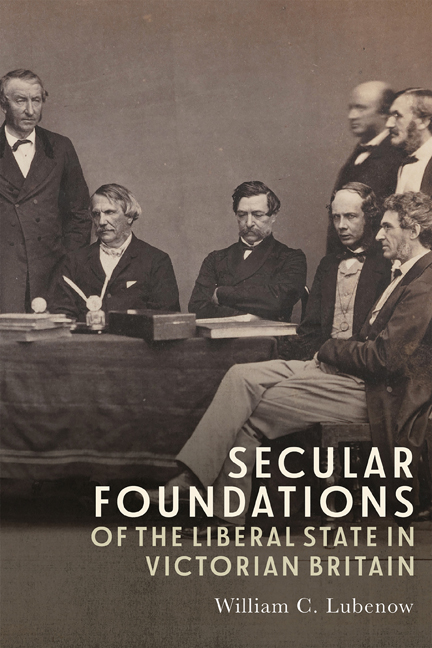Book contents
- Frontmatter
- Dedication
- Contents
- Preface
- Introduction: Methods, Materials, and Theses
- 1 From the Fiscal–Military–Confessional State to the Secular–Liberal State
- 2 From the Northcote–Trevelyan Report to the Order in Council of 1870
- 3 The Haldane Committee and the Creation of the Cabinet Office: Hankey to Hunt
- 4 “Fit and Proper Persons”: The Secular Clerisy
- 5 The Secular Clerisy’s Outillage Mental and Mandarin Solidarity
- 6 Regions of Doubt and Belief – Varieties of Secular Experience: Essays and Reviews, Ecce Homo, and the Gifford Lectures
- Conclusion and Epilogue
- Select Bibliography
- Index
5 - The Secular Clerisy’s Outillage Mental and Mandarin Solidarity
Published online by Cambridge University Press: 09 May 2024
- Frontmatter
- Dedication
- Contents
- Preface
- Introduction: Methods, Materials, and Theses
- 1 From the Fiscal–Military–Confessional State to the Secular–Liberal State
- 2 From the Northcote–Trevelyan Report to the Order in Council of 1870
- 3 The Haldane Committee and the Creation of the Cabinet Office: Hankey to Hunt
- 4 “Fit and Proper Persons”: The Secular Clerisy
- 5 The Secular Clerisy’s Outillage Mental and Mandarin Solidarity
- 6 Regions of Doubt and Belief – Varieties of Secular Experience: Essays and Reviews, Ecce Homo, and the Gifford Lectures
- Conclusion and Epilogue
- Select Bibliography
- Index
Summary
Half the copybook wisdom of our statesmen is based on assumptions which were at one time true, or partly true, but are less true day by day. We have to invent new wisdom for a new age. And in the meantime we must, if we are to do any good, appear unorthodox, troublesome, dangerous to those that begat us.
John Maynard KeynesThis wasn't intrigue, it was almost the reverse. It was part of a process, not entirely conscious, often mysterious to those taking part in it and to them above all, which had no name, but which might be labelled the formation, or crystallization, of “official” opinion. This official opinion was expected to filter back to the politicians, so that out of the to-ing and fro-ing a decision would emerge. Who had the power? It was the question that had struck me, moving between Basset [a country house] and Clapham Common. Perhaps it was a question without meaning – either way, the slick answers were all wrong.
C.P. SnowTHE Northcote–Trevelyan Report created and the Order in Council of 1870 confirmed a secular clerisy. Those “fit and proper persons” were the Victorian mandarins, some of whom settled into a re-formed Civil Service. They were a different kind of gentleman, quite unlike Lord Chesterfield and other landed and titled aristocrats of the eighteenth century. They differed also from the foppish dandies of the Regency period with their mannered and refined politeness. The 7th Earl of Shaftesbury warned against those from the unreformed Eton and other unreformed schools who merely prepared young men for the dining room and sophisticated salons. What Shaftesbury wished for was “nobler, deeper, and sterner stuff; less of refinement and more of truth; more of the inward, not so much of the outward, gentleman.” The Northcote–Trevelyan Report gave them to him. These “fit and proper persons,” this different kind of gentleman, this secular clerisy, were serious, earnest, and manly.
With their university educations certified by competitive examinations, the authority of the secular clerisy was indirect rather than political or partisan. Since, as Gladstone, Jowett, and Macaulay had prescribed, they held their positions as a result of success in competitive literary examinations, their authority was a cultural authority which depended on persuasion rather than coercion.
- Type
- Chapter
- Information
- Secular Foundations of the Liberal State in Victorian Britain , pp. 176 - 208Publisher: Boydell & BrewerPrint publication year: 2024



